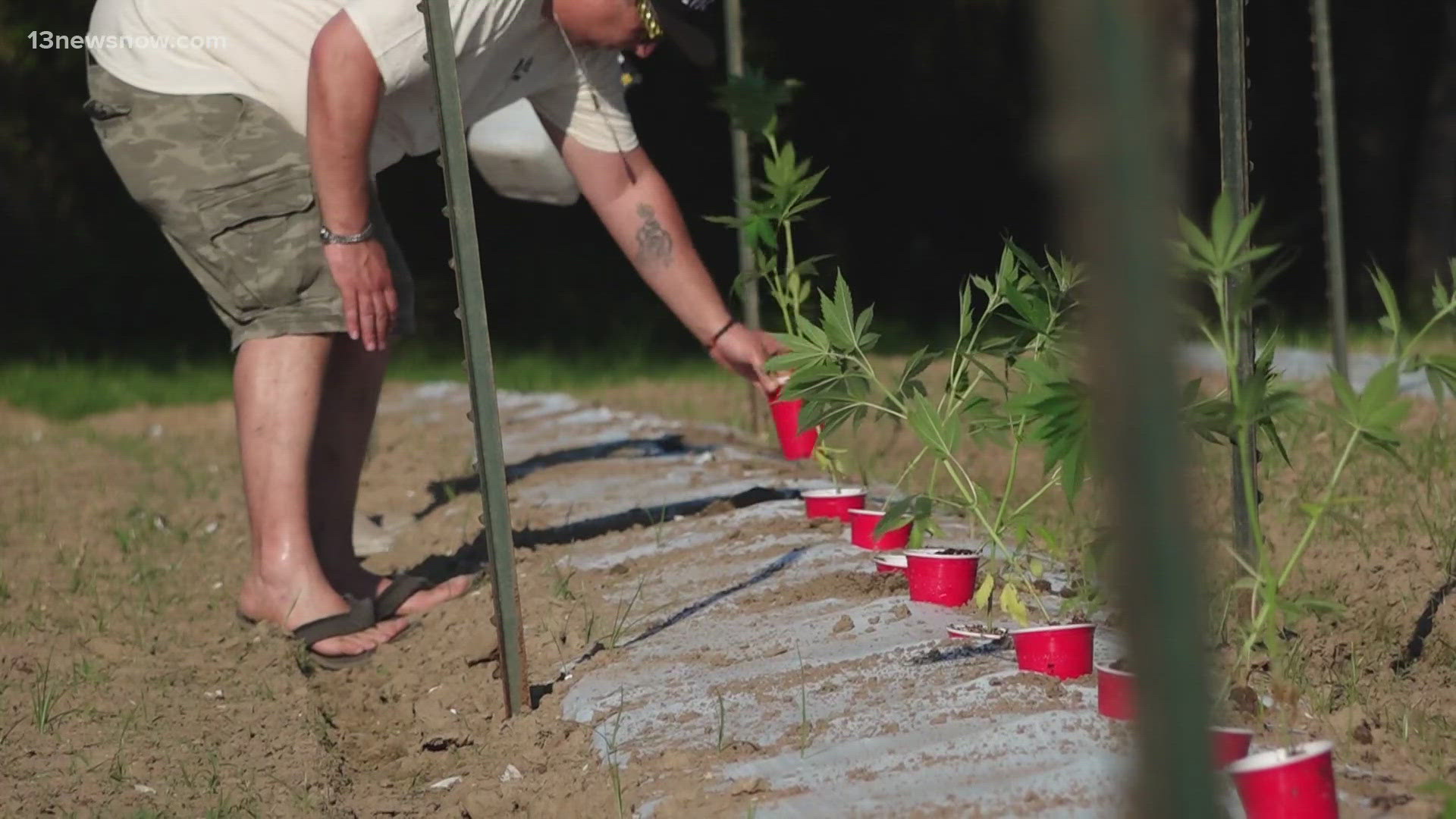SUFFOLK, Va. — On July 1, 2023, a slate of sweeping changes to the hemp industry took effect in Virginia amid a crackdown to better regulate hemp-derived products and consumer goods in the state.
Hemp, while similar in look to marijuana, tests below 0.3% Delta-9 tetrahydrocannabinol. Because of its lower THC content, hemp-derived products like CBD are often less potent and do not contain as high of a percentage of the psychoactive chemical that gets users "high" from marijuana.
Despite the hemp law changes, it still remains the sole legal game on the market besides medical marijuana, without a legalized recreational marijuana marketplace.
Hemp farmers like Jay Lilley of Suffolk and Brad Wynne of Virginia Beach remain unsure about the exact direction of the hemp industry. But they believe a pivot could be coming soon for local farmers.
"We were certified organic growers, certified organic processors. At one point certified by the state health board when doing stuff for human consumption. All of that was to put out this brand to say, 'Look we can be trusted.' And we’ll keep doing this [hemp] but we also want to do this as well," Wynne said, separating his hands.
When asked what he was referring to: "THC."
Earlier this year, Republican Governor Glenn Youngkin vetoed the adult-use cannabis marketplace bill, whose Chief Patron is Virginia Beach State Sen. Aaron Rouse.
The bill, which is the Democrats' latest attempt to legalize a recreational marketplace in the years since they've legalized possession, would establish the framework for recreational marijuana sales across the state, establishing limits on the numbers of retail stores and cultivators in the state.
“They say, 'Legal recreation market doesn’t get rid of the black market.' Yes, there will always be a black market. Period. But it will help. It would make a huge dent, and more importantly, Virginians would have access to what you know are safe products," Wynne said.
It's Wynne's belief that hemp farmers are staying put until the day marijuana becomes legalized, allowing them to apply and have a better chance of getting a license because of their experience growing hemp.
“We can certainly do it right now, but we can’t. Most hemp growers and processors since hemp has crashed, they are basically holding out hope and doing a slow bleed of their product to get to THC. I don’t know many will keep doing it [hemp] after it is legalized," Wynne said.
For Lilley, who said he's unsure of whether he'll apply to become a marijuana farmer, tells 13News Now it's like the equivalent of getting a job after studying a topic in college.
“I don’t think it should be everybody is growing should have the opportunity to play. The opportunity to apply sure, but whether you make it to the NFL, that’s to be determined," Lilley explained.
From Hampton Roads to areas like Richmond, that's a sentiment felt by hemp farmers everywhere.
"There might be 100 amazing people that do everything by the books, but there are always a few that try to skirt the laws and find the gray areas. Last year, the crackdown was great. It pulled those products off the shelves, but that’s usually what the laws are going after. It never considers 'How does this impact the small farmer that does everything by the book?' There is an issue there," said Mark Tavares, another hemp farmer who lives north of Richmond in Ashland, Virginia.
For more coverage, tune into 13News Now at 6 p.m. on July 17 for the next part of the four-part series.

